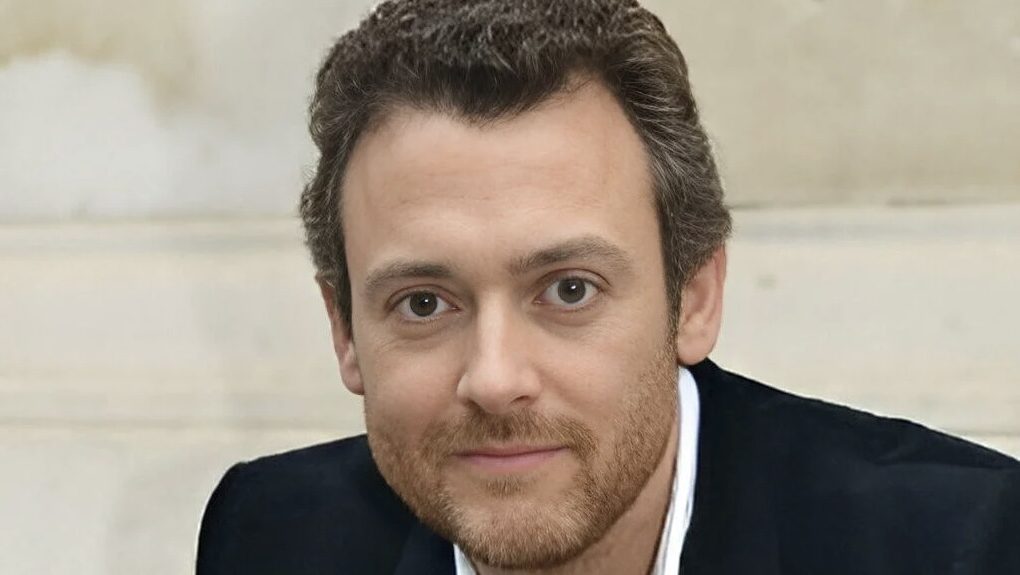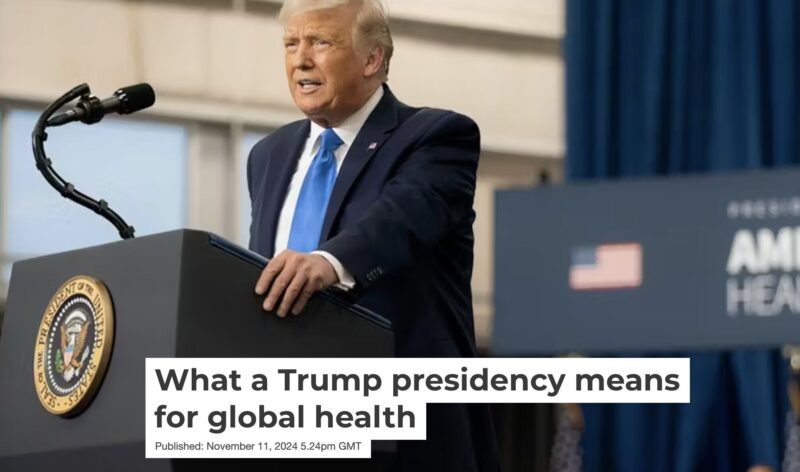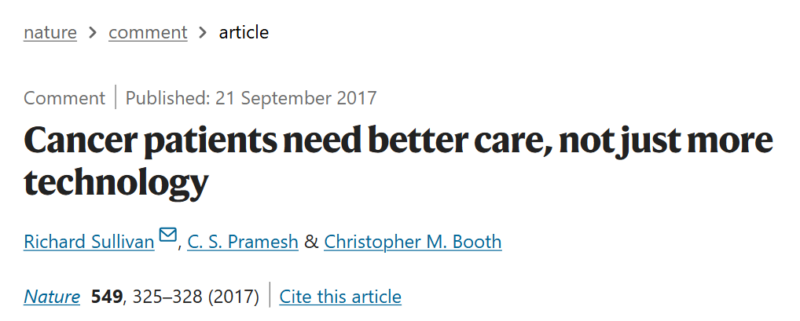
Richard Sullivan: In one stroke of the pen the USA (again) heads for the WHO exit
Richard Sullivan, Director of the Institute of Cancer Policy, shared a post on LinkedIn:
“And in one stroke of the pen the USA (again) heads for the WHO exit.
As we predicted in the Conversation the Trump presidency has confirmed it intends to withdraw from the World Health Organisation. There is also a parallel Executive Order which freezes all further foreign assistance including health and development pending a re-evaluation and realignment with ‘American interests’ (however that will be defined).

No part of WHO cancer – Headquarters, Regional offices, International Agency for Research on Cancer, and the International Atomic Energy Agency Programme of Action for Cancer Therapy – will go untouched.
Whilst some programs – Global Childhood Cancer Initiative and, mostly, Cervical Cancer Elimination Initiative – will remain outside the fray (this is almost entirely funded by St. Jude’s) the chilling effect both domestically (NCI Centre for Global Health and wider global cancer-related programs) and internationally will eventually be felt.
In one sense the global health and development architecture was long overdue an overhaul but whether the wider global community sees this as an opportunity to align and reinvigorate global cancer support remains to be seen.
The biopharmaceutical Industry and wider private sector have been woeful in supporting global cancer research and capacity building compared to their returns on investments. Neither have wealthy high-income countries (federal or philanthropic) done much better.

Despite all the talk of a new convent to support global cancer capacity, systems, and research, beyond the endless talk, there seems neither the vision nor the fiscal headroom to seriously address global cancer. Despite the vicious competition for funds from almost every quarter of health and development cancer has serious funding. But it’s all ‘locked up’ inside high-income, techno-centric ecosystems.
‘Cancer patients need better care, not just more technology’

China should see this as an opportunity to do more strategically beyond global health security but so should the wealthy private and public sector in the West including the World Bank Group.”
More posts featuring Richard Sullivan.
-
Challenging the Status Quo in Colorectal Cancer 2024
December 6-8, 2024
-
ESMO 2024 Congress
September 13-17, 2024
-
ASCO Annual Meeting
May 30 - June 4, 2024
-
Yvonne Award 2024
May 31, 2024
-
OncoThon 2024, Online
Feb. 15, 2024
-
Global Summit on War & Cancer 2023, Online
Dec. 14-16, 2023
